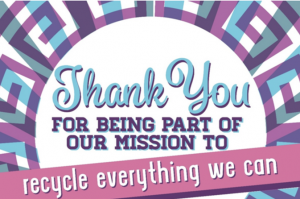
5 Tips to Communicate for Pro-environmental Action
by Livvy Drake
Would you like your communications whether verbal or written to inspire pro-environmental actions? Are you inspiring change with the way you share your messages or inadvertently disempowering people? Read on for 5 communication tips that you can easily adopt.
I was recently asked to evaluate a video from a well known environmental campaigning organisation which outlined all the scientific explanations around global heating and the climate crisis. It ended with a rally call that was very negative “ your small individual actions will NOT make a difference, you have to join us on the streets”.
Similarly when I watched the Leonardo Caprio film, ‘Before the Floods. I was disappointed that after all the problems highlighted they recommended ethical shopping, avoiding plastic bags and voting for a pro-environmental President.
Both of these approaches left me feeling disappointed because if I felt disempowered with overwhelming problems and inadequate solutions to take, how did other people feel? As humans we are predisposed to action as a way of making us feel better) when we feel out of control (action bias is one of the reasons behavioural psychologists use to explain panic shopping)


So here are 5 tips for communication to inspire pro-environmental actions.
1. Provide a solution or action
Don’t just tell people NOT to do something. With every problem, present a solution or positive action.
2. Frame the message positively on the desired behaviour
This is particularly relevant for littering messages. Avoid focusing on the undesirable behaviour as this just reinforces it. Also avoid ‘Don’t do’ statements. Instead say Thank you for taking your rubbish and recycling it.

3. Highlight how many other people are taking action
Individually our actions can feel futile, but knowing other people are acting makes actions seem worthwhile plus plays into the need for social proof that the actions are socially acceptable. If you can demonstrate that people like them are taking action even better.
4. Find relatable Messengers

Linked with the above, choose messengers that people can relate to or trust. In our consumer society many people trust supermarkets and big brands. Millennials are more likely to trust influencers over celebrities because they see them as more ‘like them’.
5. Highlight the benefits

Often people will not take action if they don’t think their actions will make a difference or they won’t experience any personal benefits (especially if they are not environmentally motivated).
So highlight the personal benefits e.g. health benefits and social benefits (either for their social status or their family).
If you would like to make your campaigns more effective by applying the principles of behavioural psychology, watch our on demand workshop specifically designed to help environmental campaigners and communicators achieve greater behaviour change for the environment.
And for more tips you can always join our newsletter.

Engage people outside the echo-chamber and inspire action for your cause!
If you would like to make your campaigns more effective by applying the principles of behavioural psychology, watch our on demand workshop specifically designed to help environmental campaigners and communicators achieve greater behaviour change for the environment.
And for more tips you can always join our newsletter.

You might also like:


